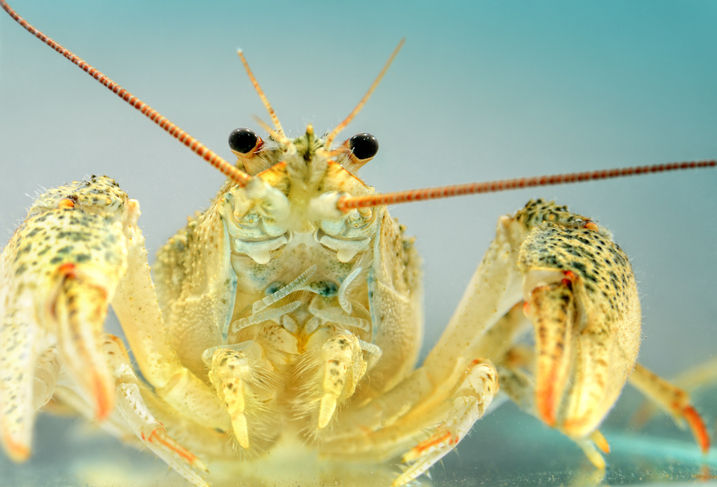Decapods and Climate Change #COP26
- Nov 4, 2021
- 2 min read
Updated: Sep 16, 2022
Climate change will affect us all, whether we live on land or in the oceans. In light of COP26, we’re exploring some of the ways that climate change is impacting animals like crabs, lobsters and prawns, and also how the consumption of these animals is contributing to climate change.

Increasing Water Temperatures As the atmosphere warms, so is the water, and warmer water holds less gas. Decapods like crabs and lobsters breath oxygen, so lower oxygen levels in water will impact survival. New research by Berger et al (2021) lists this as the biggest climate-change-based threat currently facing these animals. Ocean Acidification Ocean acidification is caused by increased CO2 in the atmosphere dissolving in sea water. Animals like crabs and lobsters need calcium carbonate to grow their shells, but it dissolves in acidic conditions. As the oceans become acidified, decapods will find it harder and harder to grow shells, negatively impacting survival. Ocean Debris & Plastic Pollution Ocean plastic and other debris are extremely harmful for aquatic animals. Here are three ways that plastic pollution in our seas is affecting decapods:
New research by the University of Hull found that plastic waste releases a chemical that crabs mistake for decomposing food. This results in them wasting important energy searching for food that turns out to be plastic, leaving less energy for finding real food.
Research has found that microplastics impair hermit crabs’ ability to gather and process information, having a negative impact on the shell selection process. Selecting an appropriate shell to protect them from predators and other threats is essential to their survival.
Hermit crabs, unlike other decapods, cannot grow their own hard exoskeleton. Instead they search through discarded shells for one that fits. However, with increasing amounts of rubbish in the oceans and on beaches, hermit crabs are vulnerable to making the wrong choice. Plastic debris has become “deadly traps”... When used by the crabs instead of shells, they often become trapped and die. Discarded tyres are also trapping hermit crabs, causing unnecessary deaths as they fail to escape.

Carbon Footprint The carbon footprint of consuming decapod crustaceans such as shrimp and lobster are a lot higher than expected. Beef is often highlighted as particularly damaging to the climate, but sources have found shrimp to be similar. The large carbon footprint alongside increased demand for shellfish products is a concerning combination for the planet.
There are so many more ways that climate change and pollution are impacting the oceans and our aquatic friends. We hope COP26 will lead to a stronger, proactive take on these problems.



